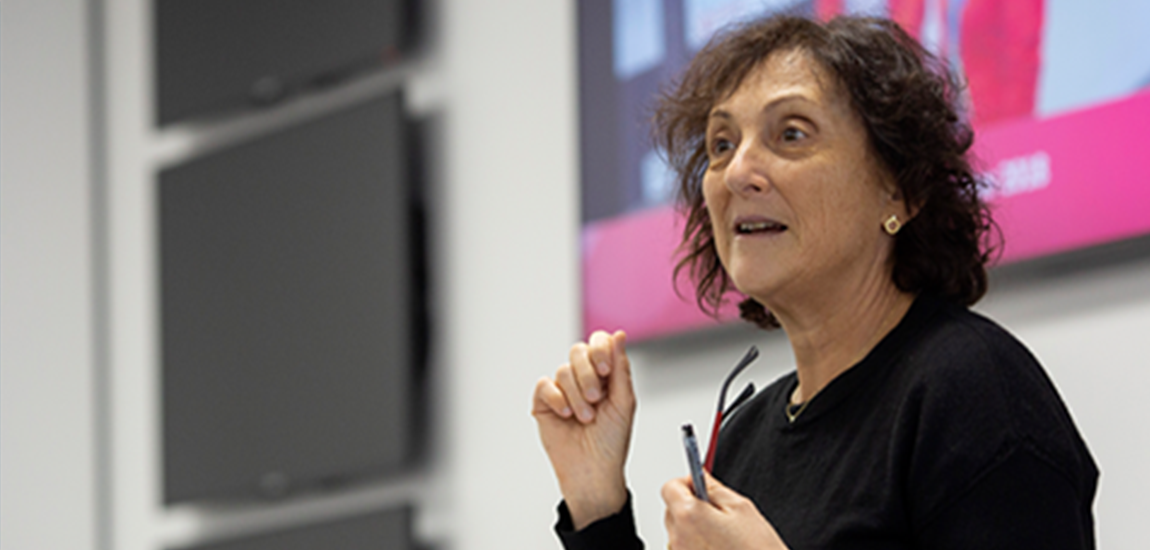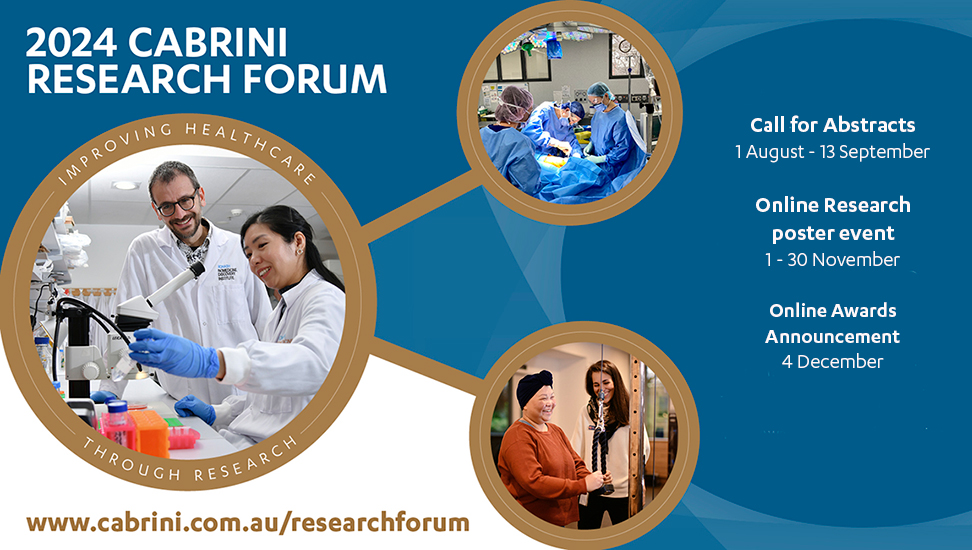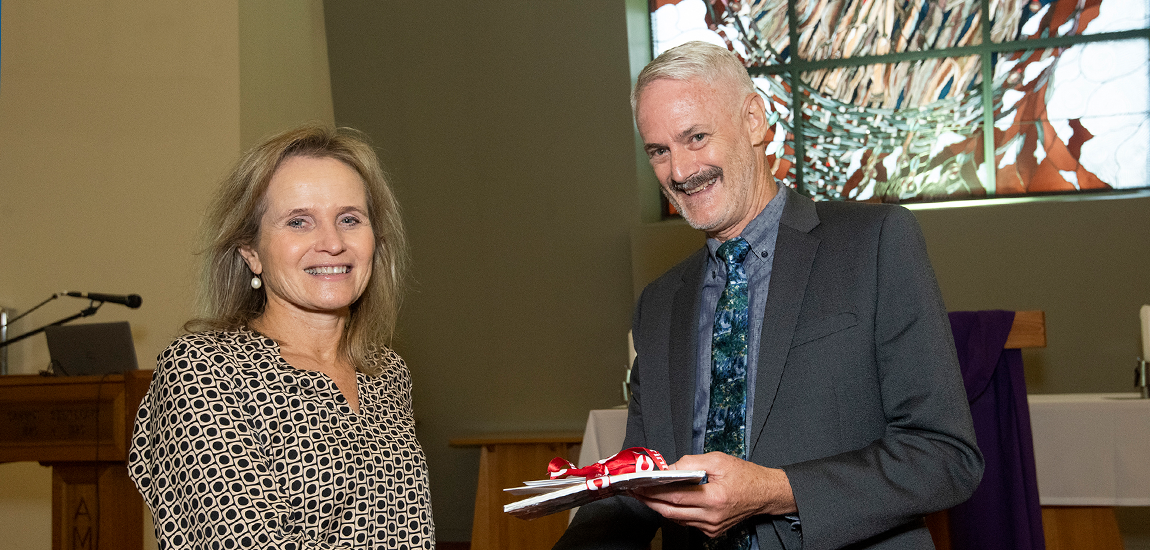About Cabrini Research
Cabrini Research is dedicated to making a difference in how we deliver healthcare and helping patients live a healthier and fuller life.
How it all began
As a private hospital research institute, Cabrini Research is a relatively rare entity in Australia. Cabrini Research was founded in 1996 as the research arm of Cabrini Health by the inaugural Institute Director Associate Professor Doug Lording AM – an esteemed endocrinologist/andrologist and committed clinician researcher at Cabrini Health.
Associate Professor Lording recognised in the early 1990s if Cabrini Health was to grow and continue to offer state-of-the-art healthcare and attract the best and brightest clinicians, they had to make a commitment to fostering and encouraging a research culture in the hospital and support the clinicians who had novel research ideas and the ambition to test them.
What was started by one incredibly committed clinician researcher is now home to multiple research departments, working in multiple clinical disciplines across the full trajectory of translational research. Our breakthroughs have saved countless lives and made significant improvements in how we deliver healthcare in a modern age.
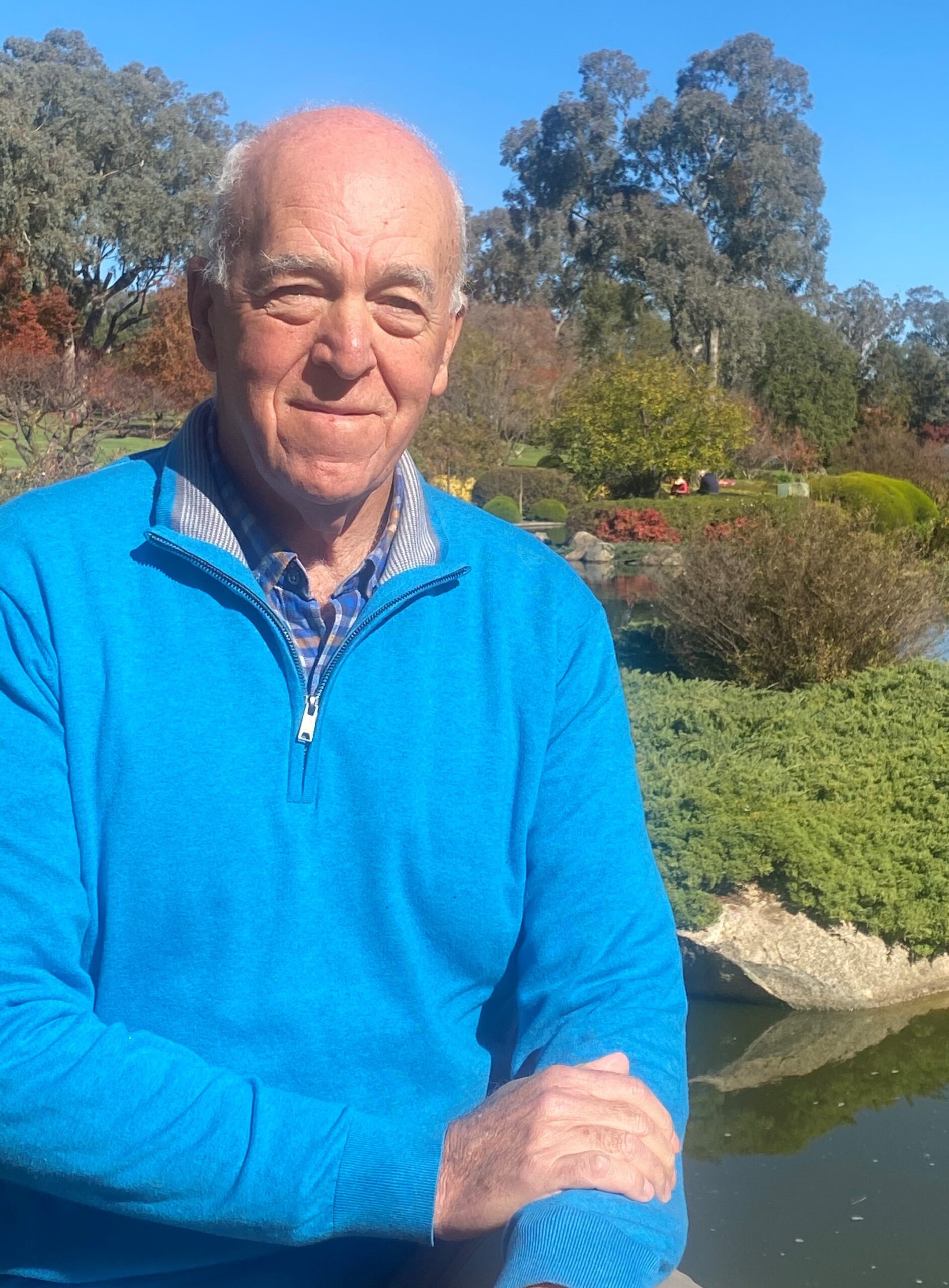
A/Prof Doug Lording AM
Inaugural Director Cabrini Research
Our aspirations
- To be a leader in research which improves patient outcomes, healthcare practices and healthcare sustainability worldwide.
- To conduct the highest quality research in areas of critical need including cancer, musculoskeletal conditions, heart disease and mental health so we can better diagnose, treat and care for patients.
- To conduct translational research which fast tracks discoveries into the clinic and impacts healthcare delivery and policy.
- To significantly enhance the capacity and accessibility for patients to be on clinical trials.
Learn how Cabrini Health is integrating research into its five-year strategic plan.
Download Cabrini Health’s Strategic PlanView our Annual Reports
Leadership, strategy, risk and governance
At Cabrini Research, we believe leadership thrives when there are strong relationships and opportunities to learn from others. Our Cabrini Research Committee and Scientific Advisory Committee bring outstanding academic, research and business qualifications as well as diverse personal strengths and perspectives to ensure Cabrini Research is in the best position to succeed.

Group Director Cabrini Research
Prof Gary Richardson OAM
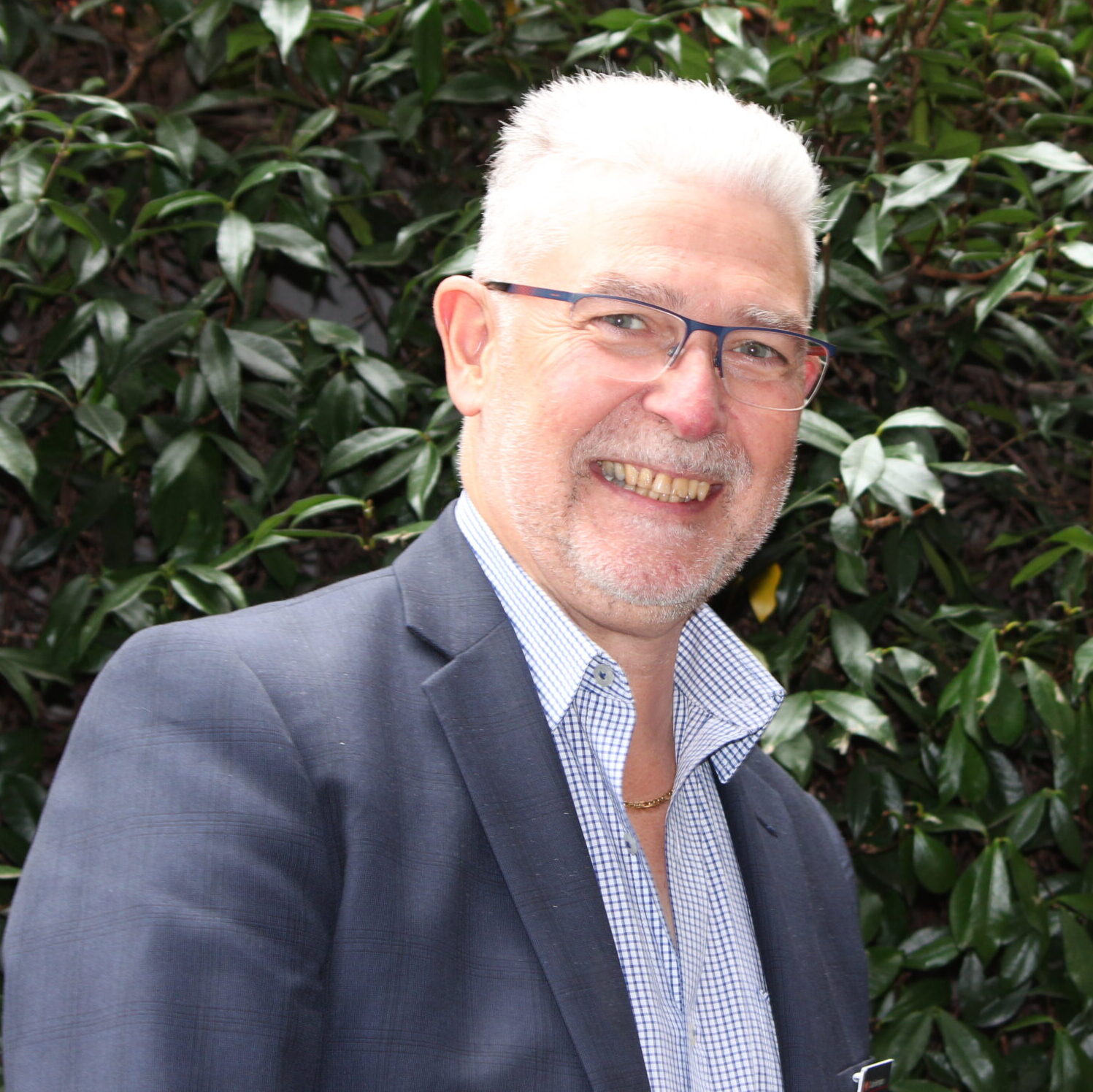
Director of Research Operations
Gavin Horrigan
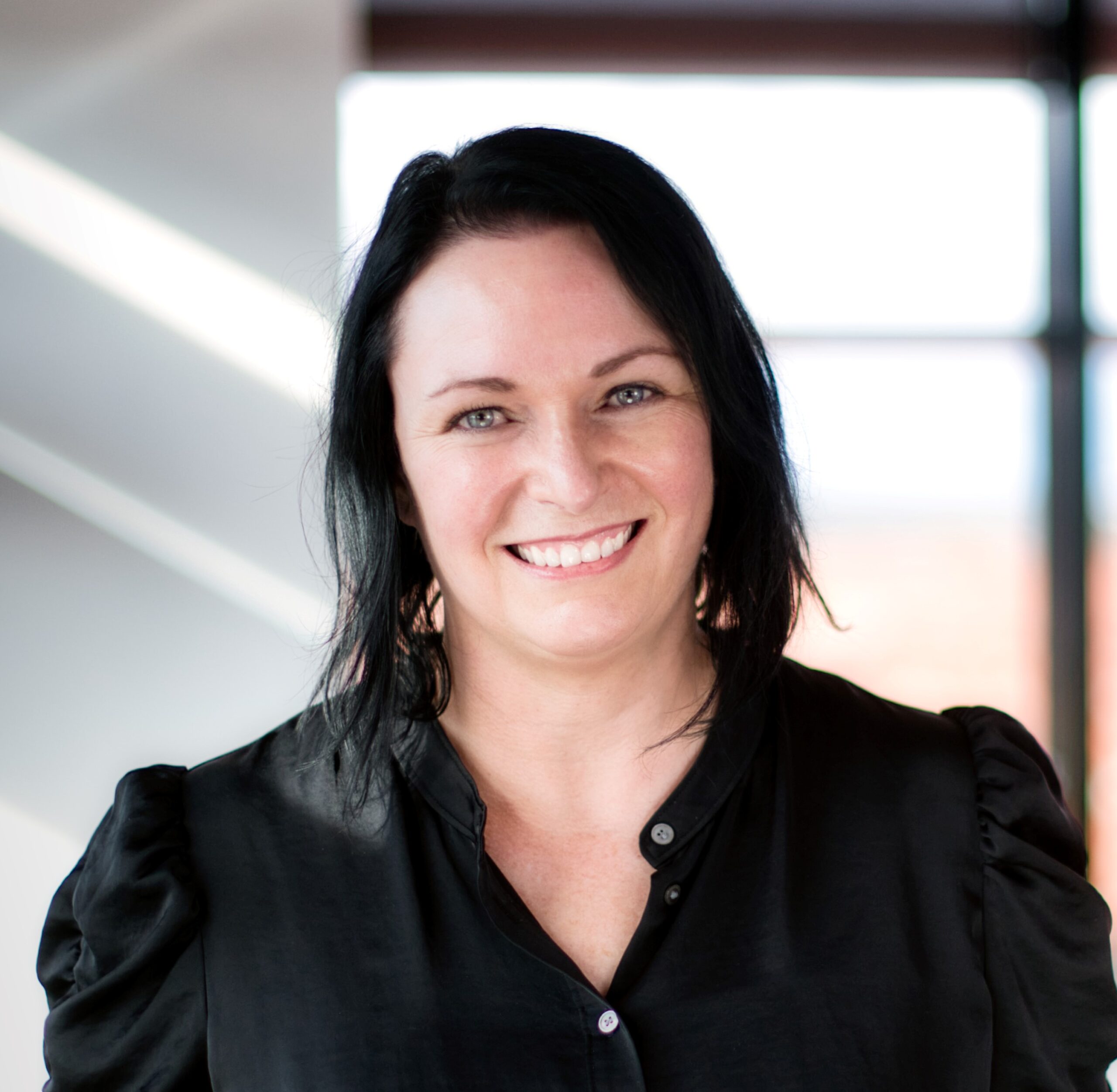
Director of Medical Research
Dr Emma Baker

Professor Terence O’Brien
MBBS MD FRACP FRCPE FAHMS FAES
Chair, Cabrini Research Committee | Cabrini Board
Professor Terence O’Brien is Chair of the Cabrini Research Committee, and Chair of Medicine (Neurology) and Head of the Central Clinical School at Monash University. He is also Program Director for Alfred Brain and Deputy Director of Research at Alfred Health. He was previously the Van Cleef Roet Chair of Neuroscience at Monash University and the James Stewart Chair of Medicine at the Royal Melbourne Hospital and the University of Melbourne.
Professor O’Brien is a specialist in neurology and clinical pharmacology, with particular expertise in epilepsy and neurodegenerative diseases. He leads a large translational research team undertaking work in both basic and clinical research, focused on developing improved treatments for people with epilepsy and related brain diseases. Through his research, he has received 18 awards from national and international scientific bodies, including the Ambassador for Epilepsy Award from the International League Against Epilepsy, the Dreifuss-Penry Epilepsy Award from the American Academy of Neurology, and the James Lance Oration and Award, the highest honour of the Australian and New Zealand Association of Neurologists. Professor O’Brien serves on a number of professional societies including as President of the Epilepsy Society of Australia and in 2016 was elected Fellow of the Australian Academy of Health and Medical Sciences.

Professor Warwick Anderson AO
BSc PhD FAHA FRCPA FAHMS
Professor Warwick Anderson AO is Emeritus Professor, Monash University. After completing postdoctoral training at Harvard Medical School, the University of Sydney, and the Baker Heart and Diabetes Institute, he was Head of the School of Biomedical Sciences and Professor of Physiology at Monash University. His research examined the renal causes of high blood pressure.
From 1997 to 2003, Professor Anderson chaired the National Health and Medical Research Council’s (NHMRC) Research Committee and was the inaugural CEO of the newly independent NHMRC from 2006 to 2015. During his tenure, he implemented sweeping changes to the research review and funding process, expanded NHMRC’s global reach, and introduced a number of Indigenous health research programs. He served as the Secretary General of the International Human Frontier Science Program Organisation from 2015 until 2021.
He has been a member of numerous international and national scientific bodies, including the Prime Minister’s Science Engineering and Innovation Council and currently chairs the Global Biodata Coalition. In 2023, Professor Anderson was made an Officer of the Order of Australia for his distinguished service to health and medical research organisations, and professional associations.

Associate Professor Caroline Brand
MBBS BA MPH RACP
Cabrini Board
Associate Professor Caroline Brand is a consultant rheumatologist and holds appointments with the Department of Epidemiology and Preventive Medicine at Monash University and the Faculty of Medicine, Dentistry, and Health Sciences at the University of Melbourne.
Throughout her career, she has had extensive inpatient and outpatient experience across both public and private healthcare sectors. Her work has focused upon the design, implementation, and evaluation of new models of care for patients with chronic conditions. More broadly, she has actively contributed towards quality and safety improvements in a number of healthcare settings across Australia. She was previously Director of the Clinical Epidemiology and Health Services Evaluation Unit, the predecessor to Melbourne EpiCentre, between 2004 and 2010.
Associate Professor Brand has contributed to a number of professional organisations and government committees including as president of the Victorian Branch of the Australian Rheumatology Association, the Cabrini Patient Experience and Clinical Governance Committee, and as Chair of the Cabrini Research Committee.

Professor Sally Green
PHD
Professor Sally Green is the Co-Director of Cochrane Australia and Deputy Head (Research) of the School of Public Health and Preventive Medicine at Monash University. Upon completing clinical qualifications in physiotherapy and doctoral studies in epidemiology and preventive medicine, she has conducted over 60 competitively funded research projects across a diverse portfolio that includes Indigenous health, behavioural determinants of disease, and health systems management.
Throughout much of her work, Professor Green investigates effective and efficient translational pathways that take research outcomes through to sustained changes in clinical practice and policy. This is underpinned by her commitment towards improved health outcomes through research.
Professor Green is a member of the National Health and Medical Research Council, Synthesis and Translation of Research Evidence Advisory Group, and Cochrane’s International Governing Board, while also an active Cochrane reviewer.

Dr Joseph Kong
MCChB MSc PhD FRACS
Dr Joseph Kong is a consultant colorectal surgeon at Cabrini Hospital, the Alfred Hospital, and the Peter MacCallum Cancer Centre (Peter Mac). He is a Senior Research Fellow at Monash University and Head of the Colorectal Cancer Immunology Laboratory at the Burnet Institute.
His research seeks to translate molecular discoveries, and integrate machine learning and robotics to enhance clinical applications for gastroenterological cancer. Completing surgical training at St. Vincent’s Hospital Melbourne, Dr Kong conducted doctoral research in colorectal cancer immunology at Peter Mac before completing postdoctoral fellowships at Princess Alexandra Hospital, the Alfred Hospital, and MD Anderson Cancer Center, where he received training in robotics for complex colorectal cancer surgery.
Alongside his clinical and research responsibilities, Dr Kong continues an active academic role in education, training, and quality assurance in benign and malignant colorectal conditions.
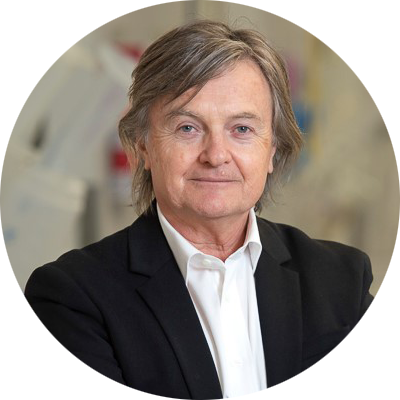
Professor Eric Morand
MD PhD FRACP FAHMS
Professor Eric Morand is Dean of the Sub-Faculty of Clinical and Molecular Medicine within the Faculty of Medicine, Nursing, and Health Sciences at Monash University, and Director of Rheumatology at Monash Health. His translational research focuses on glucocorticoid-induced proteins in the immune system, describing their expression and function in rheumatoid arthritis and lupus.
Through the commercialisation of this work, he has co-founded three venture funded companies and several major licencing agreements. Professor Morand also conducts clinical research in systemic lupus erythematosus (SLE), establishing the Lupus Clinic at Monash Health, and the Asia Pacific Lupus Collaboration, globally the largest prospective cohort to be assembled. He has also led an international therapeutic trial for SLE (TUKIP 2), which resulted in the multi-jurisdictional approval of anifrolumab and landmark confirmation of the interferon hypothesis for the pathogenesis of lupus in humans.
Professor Morand has received several awards, including the William E. Paul Distinguished Innovator Award and Global Team Science Award from the Lupus Research Alliance; the Evelyn V. Hess Award from the Lupus Foundation of America; the Victoria Prize for Science and Innovation; and the Parr Prize from the Australian Rheumatology Association. In 2022, he was elected as a Fellow of the Australian Academy of Health and Medical Sciences.

Professor Gary Richardson OAM
MBBS FRACP
Group Director, Cabrini Research
Professor Gary Richardson OAM is Group Director of Cabrini Research and the Neil Beauglehall Endowed Chair in Medical Oncology Research. After completing medical studies at Monash University, he held fellowships with St. Vincent’s Hospital Melbourne, the Peter MacCallum Cancer Centre, and the National Cancer Institute in the United States of America.
Returning to Australia, he established the Monash Oncology Research Institute at Monash Medical Centre, and programs in haematology and oncology research at Cabrini Health. Professor Richardson has been Principal Investigator for over 300 clinical trials, several of which have resulted in the regulatory approval of targeted therapies and immunotherapies. His preclinical research has led to the identification of novel predictive biomarkers for breast, lung, and gynaecologic cancers, with ongoing research investigating their tumour microenvironment and immune landscape.
Professor Richardson also holds several leadership roles, including with Monash Partners, and was previously President of the Medical Oncology Group of Australia, Chairman of Foundation 49, and advisory board member for the National Male Health Policy and the Victorian Men’s Health and Wellbeing Strategy. In 2017, he was awarded the Medal of the Order of Australia for services to medical oncology.
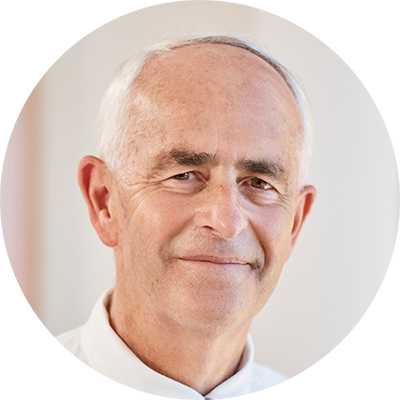
Bob Santamaria
BCom LLB
Cabrini Board
Mr Bob Santamaria has more than 40 years’ experience across a diverse portfolio that includes a number of landmark transactions that shaped corporate Australia. He retired as ANZ Group General Counsel in 2019, after 12 years in that role. During this time, he oversaw all major litigation for ANZ and led its response to the Banking Royal Commission. Prior to ANZ, he was a partner at Allens Arthur Robinson for 20 years, specialising in mergers and acquisitions, and corporate reconstructions, and was the Executive Partner for the firm’s Corporate Department.
Since retirement, Mr Santamaria has actively contributed to the community, joining the Cabrini Research Committee upon its formation after having joined the Board of Cabrini Australia in 2020. In addition to these roles, he serves on the board of Villa Maria Catholic Homes, which delivers aged care services and support for disability and homeless communities, and the Orygen Youth Mental Health Foundation.

Sue Williams
BBus MPA AMP GAICD
Cabrini Health Chief Executive
Ms Sue Williams was appointed Chief Executive of Cabrini Health in 2019, transitioning from her previous role as Chief of Health Operations. She has over 25 years’ experience in the healthcare industry at the senior management level in both public and private sectors. She has held various roles including as Director of Nursing at the Royal Melbourne Hospital, Chief Operating Officer of Hospitals at Healthscope, and Group General Manager at Spotless Group.
Prior to joining Cabrini, she served as Chief Executive Officer for Peninsula Health, where she oversaw the delivery of mental health and community services to a patient population of over 300,000 people. Clinically trained as a nurse, Ms Williams has received postgraduate qualifications in business management, from Monash University, Harvard Business School, and the Australian Institute of Company Directors. Underpinning her numerous executive achievements is a commitment to patient-centric care, resonating across the Cabrini Health network.

Kee Wong
BE MBA FAICD
Consumer
Mr Kee Wong is the founder of e-Centric Innovations – a technology consulting firm that operates in Australia, Malaysia, and Singapore, serving large multinational enterprises and governments. He invests in a broad portfolio of industries that include technology, retail, property, professional services, and food and beverage industries in Australia and abroad. He also plays an active role in supporting socially impactful start-ups.
Mr Wong is currently a board member for ASX100 listed companies Carsales.com and Invocare. He also holds numerous directorships including the Walter and Eliza Hall Institute of Medical Research, the Arts Centre Melbourne, the Victorian Government Investment Fund, and the Australian Institute of Company Directors, only a few of the organisations he serves. Amidst these commitments, Mr Wong is also Adjunct Professor of Computer Science and Information Technology at La Trobe University.
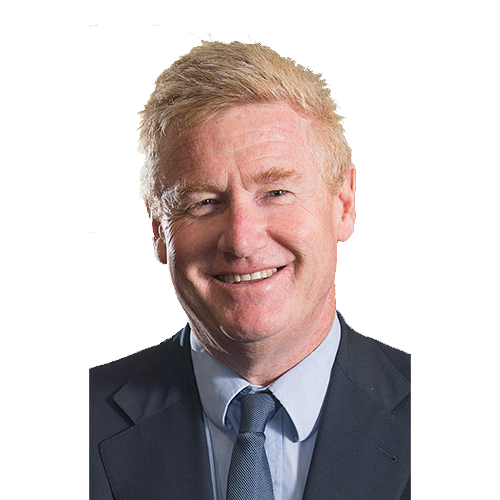
Professor Stephen M. Jane
MBBS PhD FRACP FRCPA
Chair, Scientific Advisory Committee
Professor Stephen Jane is Chair of the Scientific Advisory Committee for Cabrini Research and Director of Research at Alfred Health. He also holds a number of roles with Monash University including Foundation Dean for the Sub-Faculty of Translational Medicine and Public Health, Head of the Epidermal Development Laboratory, Co-Head of the Red Cell Research Group within the Division of Blood Cancers and was previously Head of the Central Clinical School.
His broad research interests include both developmental and acquired disorders of the blood and skin in mouse models. Upon completing his medical studies at Monash, he underwent training in both clinical and laboratory haematology at the Alfred Hospital before completing doctoral research under Professor Hatem Salem, Director of the Australian Centre for Blood Diseases. He then went to the United States, firstly as a postdoctoral fellow at the National Institute of Health and then as a member of faculty at St. Jude Children’s Research Hospital. He returned to Australia in 1995 as a Wellcome Senior Research Fellow at the Bone Marrow Research Laboratories across the University of Melbourne and Royal Melbourne Hospital. He became its Director in 2000, a Principal Research Fellow of the NHMRC in 2005, and a Professor of Medicine at the University of Melbourne in 2006.
In 2011, he assumed his current roles with Monash University, including as member of Alfred Health’s Clinical Haematology Service. Under his leadership, the school saw a four-fold increase in its competitive grant funding, recruiting over 400 new researchers and 30 laboratory heads.

Professor Chris Bain
MBBS MinfTech PhD
Professor Chris Bain is Professor of Practice in Digital Health at the Faculty of Information Technology, Monash University. An experienced clinician and health information management and technology (IMT) practitioner, he has diverse exposure to broad aspects of the healthcare system in Australia.
His research focuses upon the design, implementation, and management of operational IMT functions in healthcare organisations, across a broad range of data and technology-driven applications. With 12 years’ experience as a medical practitioner and 15 years in health IMT, he is one of few health informaticians in Australia with both extensive clinical and technological experience. Professor Bain has previously held leadership positions in the Australasian Institute of Digital Health and actively participates in jurisdictional committees on topics around digital health.
In 2017, he was appointed by Monash University as its inaugural Professor of Practice in Digital Health and holds several adjunct appointments with the Faculty of Medicine, Nursing and Health Sciences while working with a multi-sectoral network of stakeholders across faculties and institutes at Monash.
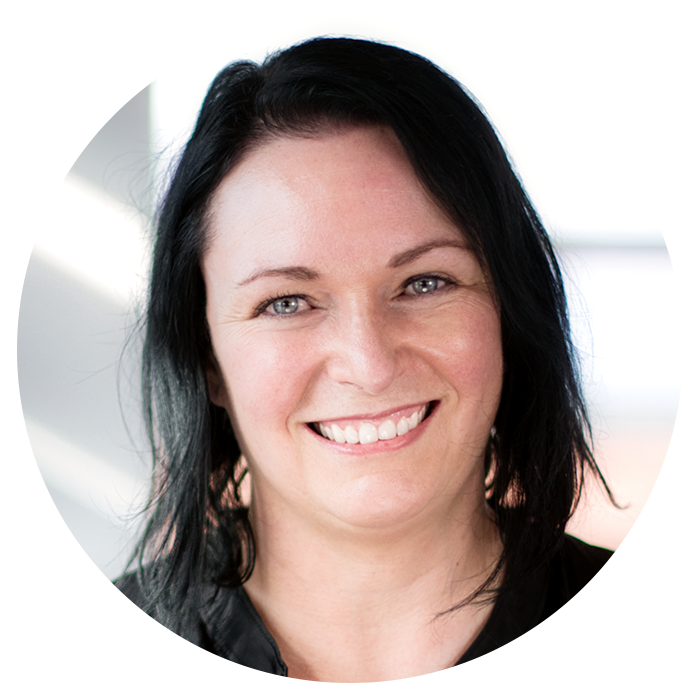
Dr Emma Baker
BSc PhD
Dr Emma Baker joined Cabrini in 2015 and is Director of Medical Research at Cabrini Research. She completed degrees in medical and molecular biology before completing her doctoral research at the University of Melbourne and the Peter MacCallum Cancer Centre. She went on to complete postdoctoral fellowships in cancer epigenetics at the Baker Heart and Diabetes Institute and St. Vincent’s Institute of Medical Research. At St. Vincent’s she led independent research in oncology, continuing her work in epigenetics while also focusing on preclinical drug discovery.
She has been the recipient of Middows Research, NHMRC Peter Doherty, and Cure Cancer Australia Fellowships. With Cabrini, she played a central role in its organisational restructuring, which led to the establishment of Cabrini Research as an independent body in 2021. She continues to oversee its research activities, in particular, guiding and shaping strategy across all noncancer research departments.

Professor Alex Boussioutas
MBBS PhD FRACP AGAF FGESA GAICD
Professor Alex Boussioutas is Director of Gastroenterology and inaugural Director of Clinical Genetics and Genomics at the Alfred Hospital, Program Director for Specialty Medicine at Alfred Health, and Head of Gastrointestinal Risk Management at the Peter MacCallum Cancer Centre (Peter Mac) and Alfred Health. After completing degrees in medicine and science at the University of Melbourne, he completed doctoral research in genomic gastroenterology, for which he was awarded the Sir Peter MacCallum Medal for Scientific Excellence.
Professor Boussioutas is dual trained in gastroenterology and general medicine and was formerly Deputy Director of Gastroenterology at the Royal Melbourne Hospital and Head of Gastroenterology at Peter Mac, while also the longest serving Associate Dean for Graduate Research at the Faculty of Medicine, Dentistry, and Health Sciences at the University of Melbourne, until 2021. As Head of the Gastrointestinal Translational Research Laboratory at Monash University and Alfred Health, his multidisciplinary research includes population health and screening, novel technologies for early cancer detection, and genomics-led discovery biology for gastric cancer.
He has clinical and research interests in cancer genetics and was the only Australian collaborator for the Cancer Genome Atlas Network in upper gastrointestinal cancer, which led to landmark studies in the characterisation of gastric and oesophageal cancer. Professor Boussioutas is President of the Gastroenterology Society of Australia and maintains active teaching appointments at Monash University, from the undergraduate level through to doctoral supervision.

Professor Wendy Brown
MBBS PhD FRACS FACS
Professor Wendy Brown is Head of the Department of Surgery and holds a number of positions at the Alfred Hospital, including Director of the Oesophago-Gastric-Bariatric Unit, Programme Director of Surgical Services, and Chair of the Monash University Department of Surgery, the first woman to be appointed to that role.
In addition to these roles, Professor Brown is also the Clinical Director of the Australia and New Zealand Bariatric Surgery Registry and Clinical Lead of the Victorian Upper GI Cancer Registry. Her clinical focus includes bariatric and upper gastrointestinal surgery, including cancer and reflux disease. Her research complements her clinical work, examining the processes and benefits of weight loss and optimised surgical outcomes for patients. Through her interest in registry science, she led the development of the Bi-national Bariatric Surgery Registry and is involved in several translational and clinical research projects, actively collaborating with researchers in basic science.
Additionally, Professor Brown serves in a number of leadership roles, including as Chair of the Global Registry Committee and previously as Scientific Chair of the International Federation for the Surgery of Obesity and Metabolic Disorders. She is also the past-President of both the Australia and New Zealand Gastro Oesophageal Surgery Association and the Obesity Surgery Society of Australia and New Zealand. Professor Brown has been a leading voice in shaping healthcare in Australia, serving on several government committees at both Commonwealth and State levels.

Professor Andrew Forbes
BSc PhD FAHMS
Professor Andrew Forbes is Head of the Division of Quantitative Research Methodology in the School of Public Health and Preventive Medicine at Monash University. Upon completing his doctoral degree in statistics from Cornell University, he worked at Ciba-Geigy Pharmaceuticals as a postdoctoral fellow in clinical trial design and analysis. He then joined Monash University in 1992 and continues to head the Biostatistics Unit with research interests in the development of analytical methods for interrupted time series design, the application of causal modelling principles to practical problems, and latent variable methods.
Professor Forbes also leads the Biostatistics Collaboration of Australia, a consortium of five universities delivering biostatistical education, and co-leads the Australian Clinical Trials Alliance Statistics Interest Group. In 2020, he was elected as Fellow of the Australian Academy of Health and Medical Sciences for his contributions to the discipline of biostatistics and its applications in clinical and public health research.

Associate Professor Caroline Gurvich
BSc PhD
Associate Professor Caroline Gurvich is a clinical neuropsychologist at the Lisa Thurin Women’s Mental Health Centre at Cabrini and the Victoria Clinic. She also serves as Deputy Director of the HER Centre Australia and is Head of the Cognition and Hormones Group at Monash University. Her research investigates hormones and their influence on cognition across various stages of life, along with their interaction with psychological, environmental, and behavioural factors.
Additionally, her research combines neuropsychological assessments with eye movement research to clearly characterise cognition. Associate Professor Gurvich is the recipient of an NHMRC Early-Career Fellowship and a Rebecca Cooper Foundation Project Grant, and several awards and prizes for her research in neuropsychology and women’s mental health. She is committed to training the next generation of clinicians and researchers in neuropsychology through doctoral supervision.

Professor Stephen Hall
MBBS MMSc FRACP
Professor Stephen Hall is a clinical rheumatologist at Cabrini, Professor within the Monash Faculty of Medicine, Nursing and Health Sciences, and Founder and Medical Director for Emeritus Research, an independent clinical trials centre in Melbourne. After finishing his medical degree at Monash University, he completed training in rheumatology at the Mayo Clinic. He has led over 250 clinical trials and is committed to the integration of new medical advances into clinical workflows for the purpose of improving patient care and safety.
He has previously served as Chair of the Australian Rheumatology Association Education and Training Committee and the Scientific Programme Committee for the Australian Rheumatology Association. Committed to population-scale health care, Professor Hall was the Visiting Speaker at the Infectious Diseases Institute, Makerere University in Uganda where he conducted specialty clinics in one of the largest HIV hospitals in the world, while also working as a consultant rheumatologist for several hospitals throughout Cambodia.

Professor Anne Holland
BAppSci (Physio) PhD FThorSoc
Professor Anne Holland is Head of Respiratory Research at Monash University and Alfred Health, and Professor of Physiotherapy at Monash University. She is currently an NHMRC Leadership Fellow and Chief Investigator for two NHMRC Centres of Research Excellence in Pulmonary Fibrosis and Treatable Traits.
Her research investigates supportive non-pharmacological therapies for people with chronic respiratory disease, including pathways for implementation. These have involved a number of clinical trials evaluating new models of pulmonary rehabilitation that address barriers of access in conventional approaches, such as the HomeBase Trial.
Professor Holland’s research has informed more than 30 clinical guidelines globally and has led to several awards, including the Society Medal from the Thoracic Society of Australia and New Zealand, and the European Respiratory Society Gold Medal for Allied Health Professionals. Professor Holland currently serves as President of the Thoracic Society of Australia and New Zealand.
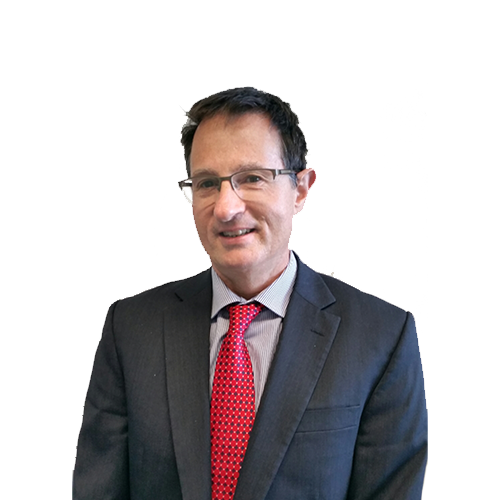
Professor David Kaye
MBBS PhD FRACP FACC DDU FESC FAHMS
Professor David Kaye is Director of the Department of Cardiology and a Senior Cardiologist in the Advanced Heart Failure and Transplant Service at the Alfred Hospital. He is also Head of the Heart Failure Research Group at the Baker Heart and Diabetes Institute and appointed the inaugural Director for the Monash Alfred Baker Centre for Cardiovascular Research.
His research examines the pathophysiology of heart failure, focusing on the identification of novel mechanisms that can be targeted for therapeutic intervention. Professor Kaye has extensive experience in translational research and commercialisation, with his work going on to form three early- to mid-stage medical device companies, one of which includes ASX-listed Osprey Medical. All are clinically active and are supported by 13 US patents.
Professor Kaye is also the recipient of the Eric Susman and RT Hall Prizes for research excellence from the College of Physicians and Cardiac Society respectively, and was awarded the 2012 Eureka Prize for Medical Research Translation. In 2015 he was elected Fellow of the Australian Academy of Health and Medical Sciences.

Professor Julia Morphet
RN MN PhD
Professor Julia Morphet is Head of the School of Nursing and Midwifery at Monash University. She is an experienced emergency nurse with more than 15 years of clinical experience. Transitioning to academia to deliver a postgraduate emergency nursing program, she has since gone on to become a leading researcher in healthcare workforce participation and training, exploring their impact on patient outcomes.
Professor Morphet has held several senior leadership roles in nursing, including Director of Education and Deputy Head of School at Monash University, and currently serves as National President for the College of Emergency Nursing Australasia. She plays an important role in shaping Australian healthcare policy, promoting safe quality care for patients and clinicians through several committees and working groups for both the Commonwealth and Victorian Governments.
In 2021, Professor Morphet received the Julie Finucane OAM Medal for Leadership in Emergency Nursing, the highest honour of the College of Emergency Nursing Australasia.

Professor Mark Shackleton
MBBS PhD FRACP
Professor Mark Shackleton is a Professor of Oncology at Monash University and Clinical Research Fellow for the Victorian Cancer Agency. He also serves as Director of Oncology at Alfred Health, Chair of Melanoma and Skin Cancer Trials, and Co-Director of the Monash Partners Comprehensive Cancer Consortium. After training in medical oncology, and at the Ludwig Institute in Melbourne, he undertook doctoral studies at the Walter and Eliza Hall Institute of Medical Research and completed postdoctoral training at the University of Michigan.
His clinical interests centre on skin cancer, with his research focusing on cancer biology, developmental biology, oncogenic signalling pathways, and clinical trials. Professor Shackleton has received several major prizes for his research including the Victorian Premier’s Award for Medical Research, a NHMRC Achievement Award, a Pfizer Australia Fellowship, and a Victorian Cancer Agency Clinical Research Fellowship. In 2012, he was awarded the Australian Science Minister’s Prize for Life Scientist of the Year.
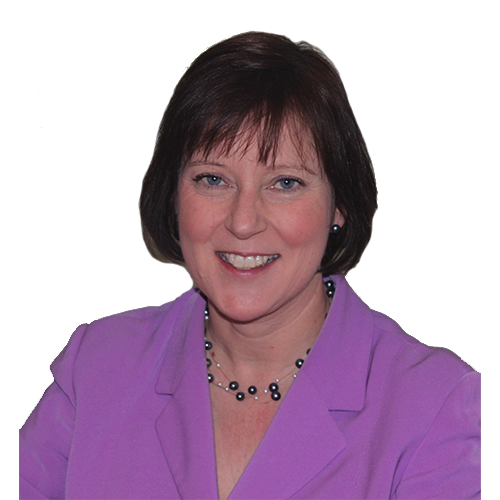
Professor Karen Walker-Bone
MB PhD FRCP
Professor Karen Walker-Bone is Director of the Monash Centre for Occupational and Environmental Health and Professor of Planetary Health at the School of Public Health and Preventive Medicine at Monash University. Also a clinically qualified rheumatologist, her research focuses on musculoskeletal health in the workplace with broader interests in workplace physical and mental health promotion, particularly with relation to both women and older workers.
Before joining Monash University in December 2022, Professor Walker-Bone was Director of the Medical Research Council Versus Arthritis Centre for Musculoskeletal Health and Work in the United Kingdom. She continues to hold an honorary appointment in occupational rheumatology at the University of Southampton. Professor Walker-Bone was the recipient of the Arthritis Research UK fellowship and is a Fellow of the Royal College of Medicine.
Promoting collaboration and information sharing
Cabrini Research regularly hosts research seminars and events to foster research conversations and collaborations. We welcome clinicians, researchers, patients and community members. Join us and learn and engage in research across multiple disciplines.
Cabrini Research Awards
Cabrini Research recognises and awards researchers for their commitment and passion for research, outstanding research outcomes and engaging presentations.
For more information on any of these award programs, please email us at ebaker@cabrini.com.au.
The Doug Lording Research Award is named in honour of the founder of Cabrini Research, Associate Professor Doug Lording AM, and is presented annually to a Cabrini individual for outstanding achievements in clinical, applied or basic research.
Awardees are considered on the total impact their career has had on leadership, mentorship and contribution to research discoveries at Cabrini. Individuals are awarded based on the lasting impact they have made on a research field, their development of new research directions, and a demonstrated lifetime commitment to progressing research at Cabrini. Awardees are conferred in the December session of the Cabrini Research Sessions.
Past winners
2024 – Professor Mark Frydenberg AM
Academic Director, Department of Urology, Cabrini Health
Adjunct Clinical Professor, Department of Surgery, Faculty of Medicine, Nursing and Health Sciences, Monash University
Urology Councillor
Chairman Health Policy and Advocacy Committee, Royal Australasian College of Surgeons
Board member, Peninsula Health
Surgery representative, Federal Council, Australian Medical Association
2023 – Professor Paul McMurrick
Alan, Ada, and Eva Selwyn Endowed Chair: Colorectal Cancer Research
Frolich-West Chair of Surgery and
Head, Cabrini Monash University Department of Surgery
Chairman, Lets Beat Bowel Cancer
2022 – Professor David Kissane AM
Chair of Palliative Medicine Research, University of Notre Dame Australia
Professor Emeritus of Psychiatry, Monash University
Head of the Szalmuk Family Psycho-Oncology Research Unit, Cabrini Research
2021 – Professor Stephen Hall
Medical Director And Founder Of Emeritus Research, Professor Of Medicine Monash University, Rheumatologist Cabrini Health
2020 – Associate Professor Jeremy Shapiro
Medical Oncologist And Researcher, Associate Professor Of Medicine Monash University
To foster and reward outstanding achievements, Cabrini Research established the Publication of the Year Award in 2020 to celebrate exceptional contributions to research. Awarded annually, the Publication of the Year Award recognizes the most important published discovery during the last two calendar years, recognizing innovative approaches, conceptual advances, high quality data and impact on patient health and wellbeing and/or health service delivery. Awardees are conferred in the December session of the Cabrini Research Sessions.
Past winners
Every year the Senior Medical Staff Association at Cabrini offers competitive research scholarships to Monash University third and fourth year Bachelor of Medical Science and Doctor of Medicine (MD) students undertaking clinical placements at Cabrini. The research scholarship program offers students experience in undertaking research and the opportunity to work within a research team. The entire program, from scholarship application, ethics and governance of research and research data collection, through to publication and dissemination at a research forum, is invaluable experience for the medical students and encourages them to make an ongoing commitment to research in their medical careers.
The Best Medical Student Presentation Award is given for the most exceptional presentation delivered annually in the Cabrini Research Sessions.
Past winners
2024 – Chuting Tang
‘Utilising Artificial Intelligence to generate Emergency Department discharge summaries’
Supervisor: Dr Ian Turner
2023 – Demi Markakis
‘Towards ocular gene therapy – Identifying patients with inherited retinal disease (IRD) who have been misdiagnosed with age-related macular degeneration’
Supervisors: Associate Professor Heather Mack
2022 – YiJie Neo
‘Patient selection for primary debulking vs interval debulking surgery: A review of current guidelines for epithelial ovarian cancer’
Supervisors: Dr Mahendra Naidoo, Dr Sharnel Perera, Associate Professor Robert Rome, Professor John Zalcberg
2021 – Jessica McKie
‘The use of Neoadjuvant Systemic Therapy in early breast cancer as a guide to adjuvant treatment choices: a single institution review’
Supervisors: Associate Professor Yoland Antill and Melissa Vereker
2020 – Kavitha Gnanasambantham
‘Can paired 68Ga PSMA PET CT Scan and multiparametric MRI enable better diagnosis and treatment of biochemical recurrence post radical prostatectomy?’
Supervisor: Professor Mark Frydenberg AM
